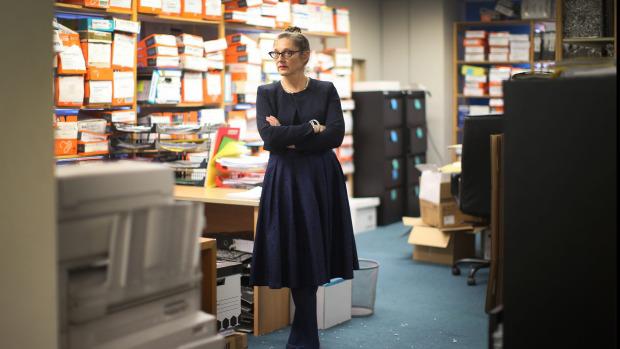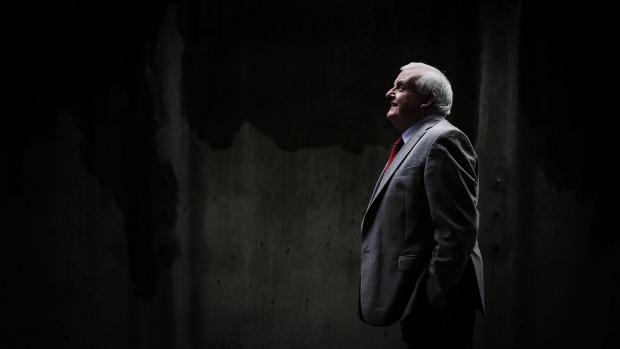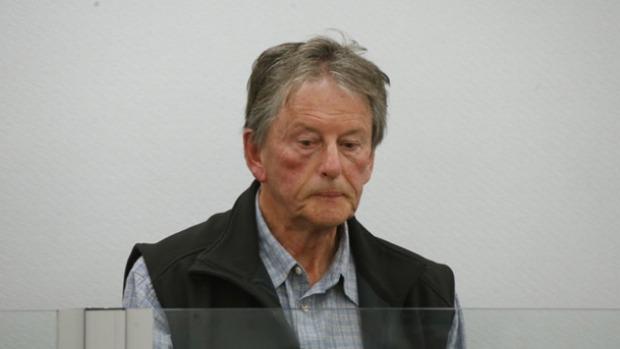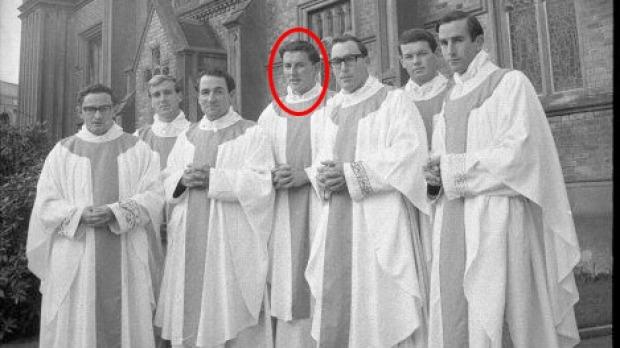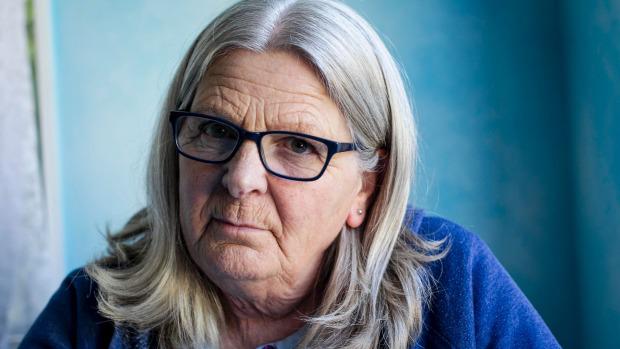|
Predator priests and pay outs - why the church investigates its own
By Talia Shadwell And Shane Cowlishaw
Every surface in Sonja Cooper's Wellington office is swamped with boxes full of secrets. Each wall is lined with folders, and her shelves are stacked with cartons full of the worst memories of more than 700 New Zealanders' lives. But the human rights lawyer cannot talk about what's in the boxes. The hundreds of victims whose complaints Cooper's legal firm on the Terrace is handling all claim to have suffered abuse while in state care sometime between the 1940s and 1993. Talk about them is strictly off the table while the practice heads into a crucial stage of litigation with the Ministry of Social Development. But Cooper can reveal some of the claims of abuse in children's homes and orphanages include accusations against clergy members in church-run accommodation administered by the state - which is vicariously liable. The hundreds of complaints represent the latest foray into institutional abuse litigation for the lawyer. Cooper wears a crucifix - but just because she likes the shape, the Wellingtonian concedes - describing her own religious identity as "back-slidden Catholic." She estimates since beginning her career in 1995 she has been involved in at least 50 settlements with the Catholic Church over clergy sex abuse. A recent case casting light on the crimes of predator priest Peter Hercock caught Cooper's eye. It offers rare insight into the Church's approach to dealing with historical claims. Three of four of the former Catholic priest's victims had complained to the Church around 2003 of the grooming Hercock begun in his rooms at Sacred Heart College, in Lower Hutt. They told the Church about the drinking, the groping, the stolen kisses, and for one - the rape. Hercock confessed, and the church paid settlements to three of his four victims, of between $25,000 - $30,000. But it didn't tell the police. Eventually, the women did, and last Monday, Hercock was jailed in Wellington for sexually abusing the four teenage girls in the 1970s, prompting Cardinal John Dew to comment afterward that the Church regretted the way the case was handled. Cooper and her colleague, lawyer Amanda Hill, had from afar watched cases like Hercock's wind their way through Australia's Royal Commission into Institutional Responses to Child Sexual Abuse. Cooper says she believes religious institutions - not just the Catholic Church -should unseal whatever records they have of allegations against clergy and make them open to independent investigation. In saying, that, she adds - no religious group is immune to abusive leaders. Cooper has taken cases involving religious leaders from among the Salvation Army, the Anglican Church, the Presbyterian Church, the Church of Latter Day Saints and the Mormon clergy. She has never had any complainants from non-Christian communities. However that does not mean it does not happen, her contemporary, Hill suspects: "in any closed and closed and cloistered environment, abuse will flourish." The Catholic Church is set apart, though - by its organised structure for dealing with complaints as yet unparalleled in New Zealand, Cooper says. It's the way she says they have gone about it that really gets the lawyer, as she takes a seat at the only table at her law firm free of boxes, and wrings her hands in frustration. So how does the Church investigate itself? Victims of Catholic clergy sexual abuse will be familiar with a philosophy called the "Path to Healing." The Catholic Church's official principles and procedures for handling clergy sex abuse is the Church's director for the National Office of Professional Standards, Bill Killgallon's, guiding document. He is currently reviewing the document. Kilgallon has, since 2010, been tasked with handling complaints of anyone who claims abuse by a priest or a member of a Catholic religious order - it is a full-time job. He explains the process: "If someone makes a complaint, the details are taken ... and at that stage they will be checked out, there will be some initial checking to see if the person they say did it is still alive. "If that was the case we'd advise people of the benefits of reporting it to police, particularly if the person was still involved or anyway involved in working with people. If that happens we would cooperate with police and help them find any information necessary." But often the complainants don't know the identity of their abuser - imagine the 10-year-old, molested by his parish priest, asked to name names 30 to 40 years later. "For the person who suffered it that suffering is very real even now, the damage that's done is not historic, it's continual," Kilgallon says. Cooper agrees with the Church's approach up to this juncture. Victims are entitled to ask for money from the Church, she says. That's because the other option is to go to police - and ultimately trial - and the lawyer believes no one should force a survivor of sexual abuse to do that: "The criminal process is in and of itself an abuse of victims- it causes them re-traumatisation, it causes them further psychological damage."
However Cooper believes the standard of proof that the Catholic Church requires to achieve a settlement is "unreasonable."
The level of investigation required is beyond most victims' reach - in terms of legal knowledge, and financial resources, the lawyer claims. In one case, Cooper says she had to threaten to take the Catholic Church to the Office of the Privacy Commissioner to convince it to release a historical record of altar boys' names during her probe into one's historical allegation he was sexually abused by a priest. Some religious orders required "witnesses" to the abuse to prove it happened - which was near impossible considering sexual abuse was usually carried out in secrecy, Cooper says. Kilgallon does not agree that the church puts up walls. "For a standard of proof we use the balance of probability, which is what would be used in a civil court or an employment setting, so I don't know what other sort of standard of proof she would be looking at."
The Church is not subject to the Official Information Act - which entitles citizens to ask to view public records - and its documents are covered by the Privacy Act.
When the case is taken on, the lawyers must ask the Church for what records it does hold.
Crucially, unlike the discovery process in a civil trial that allows both sides access to each other's evidence, the content of the Catholic Church's investigations do not have to be made available to the accuser's lawyer once a letter of demand is made, Cooper says.
Kilgallon assures if the police asked for the records the Church would hand them over. "In terms of unsealing documents, if somebody reports the matter to the police the church makes available to the police any relative records, anything the police wants. In terms of when it's investigated through the church system the same thing applies, the investigator has access to all documents." Once victims received settlements, the money was sometimes "tagged" when the Catholic Church paid up, Cooper said. That meant although the victims were awarded money - it has allegedly come to some with strings attached- an approach the Church makes clear is no longer the case- although it may have been in the past. Cooper says in some cases she had dealt with, the Church would be empowered with making the transactions - such as specifying what the settlement money was allowed to be spent on. Sometime that was "free" counselling with a member of the Church, Hill notes- pointing out that many victims were abused - like in Hercock's case - in priestly counselling sessions and consequently balked at such an offer.
Sometimes the Church would release a payout in instalments to the victims, who would have to declare each time they wanted to spend the money, and on what items - with the Church having the power to approve or decline the funds' release. He says victims sometimes specified they wanted counselling directly- but the money is otherwise strings-free. Should the church be investigating its own? Kilgallon says complaints of clergy abuse should go to the police - but explains why some wind up on the Church's doorstep. "Of course it's the police's job. But there's lots of circumstances where the church has to investigate as well. For example when someone has died the police won't investigate because they can't prosecute. There's also a need when, for example the police do investigate and decide not to prosecute, the church still has a responsibility to look at that because there's all sorts of reasons there might not be a prosecution. The prosecution might say 'oh well, the guy's 80, he's got dementia, it's not in the public interest to prosecute' or the police might say we can't present a case that's beyond reasonable doubt." Cooper, however, believes the current "Path to Healing" is littered with roadblocks. The lawyer says it is time to look at providing an alternative to religious organisations investigating their own leaders. "There needs to be some sort of independent tribunal set up to work with abuse claims… we're forever criticising organisations that investigate themselves because they are acting as judge and jury and they are in conflict of their obligations to their [community] and to their victims."
|
.
Any original material on these pages is copyright © BishopAccountability.org 2004. Reproduce freely with attribution.
